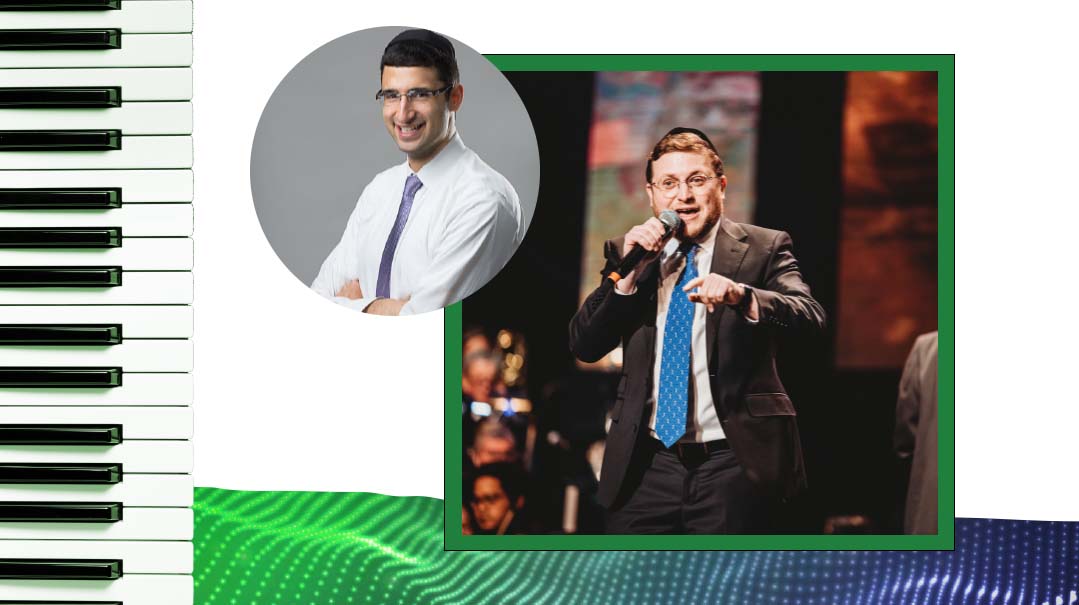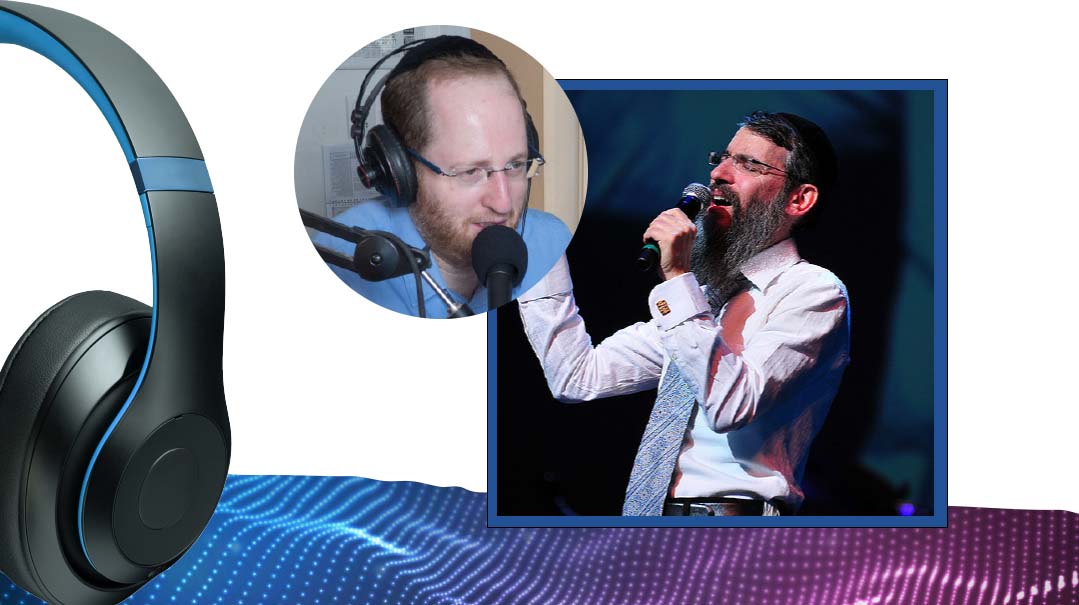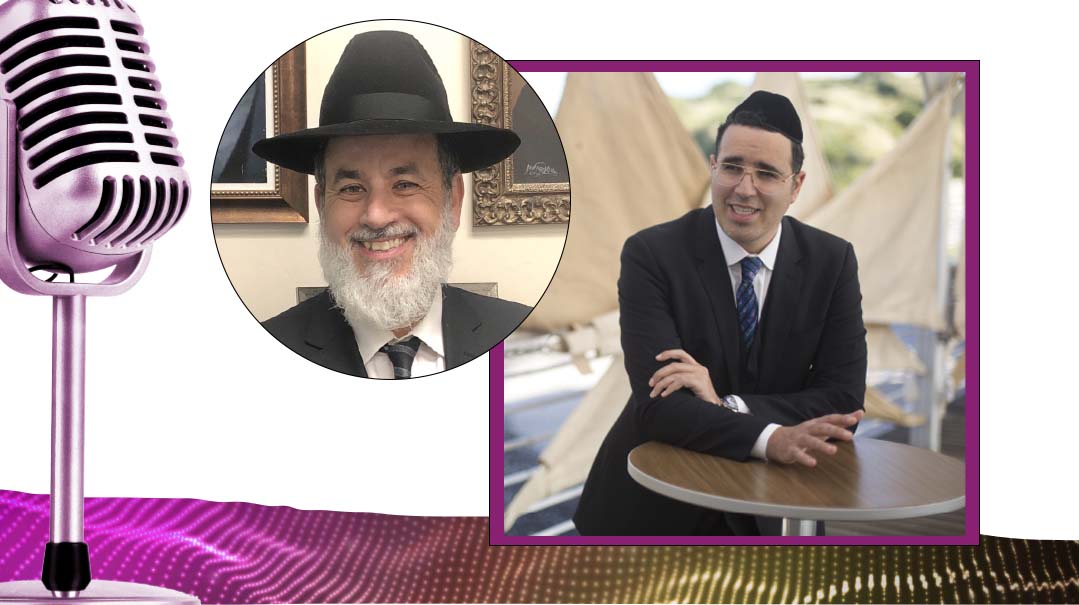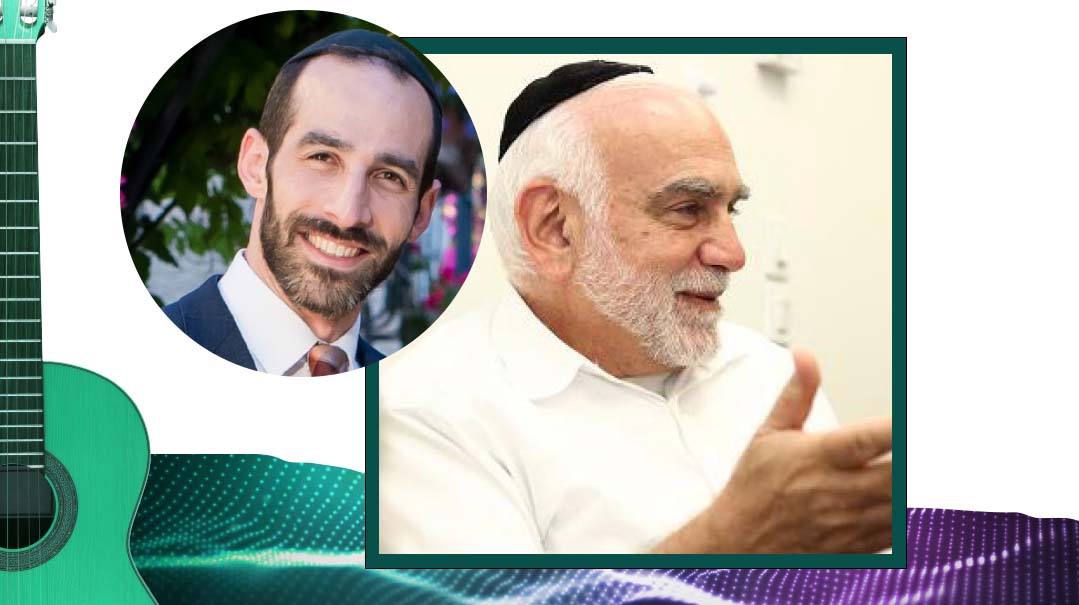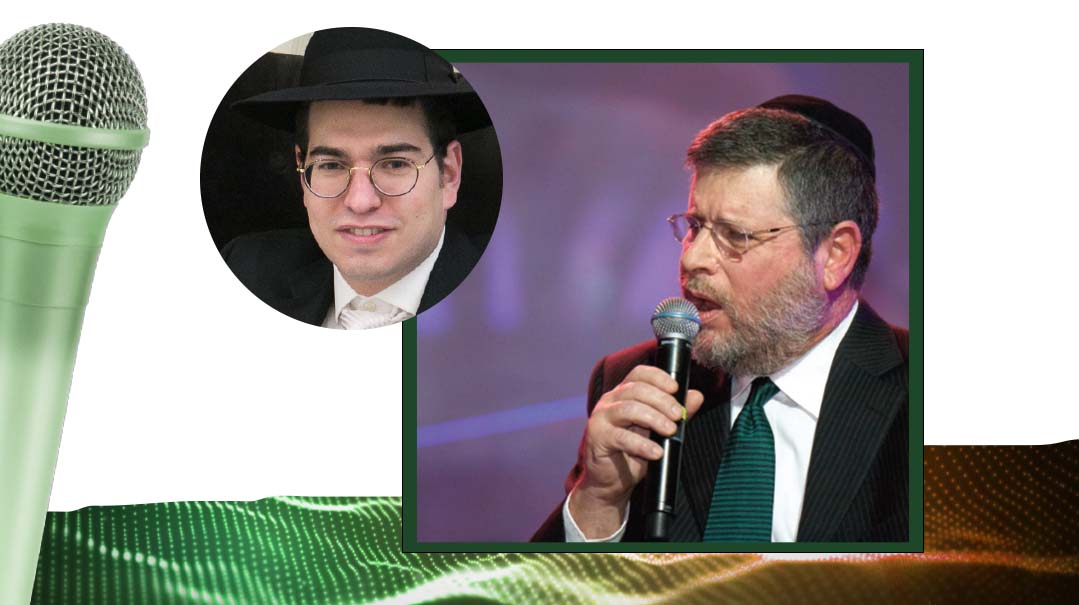Velvel Schmeltzer Invites Mona Rosenblum
| September 14, 2021"The Ananei Hakavod, symbolized by the succah, means “You are not alone. Ever”
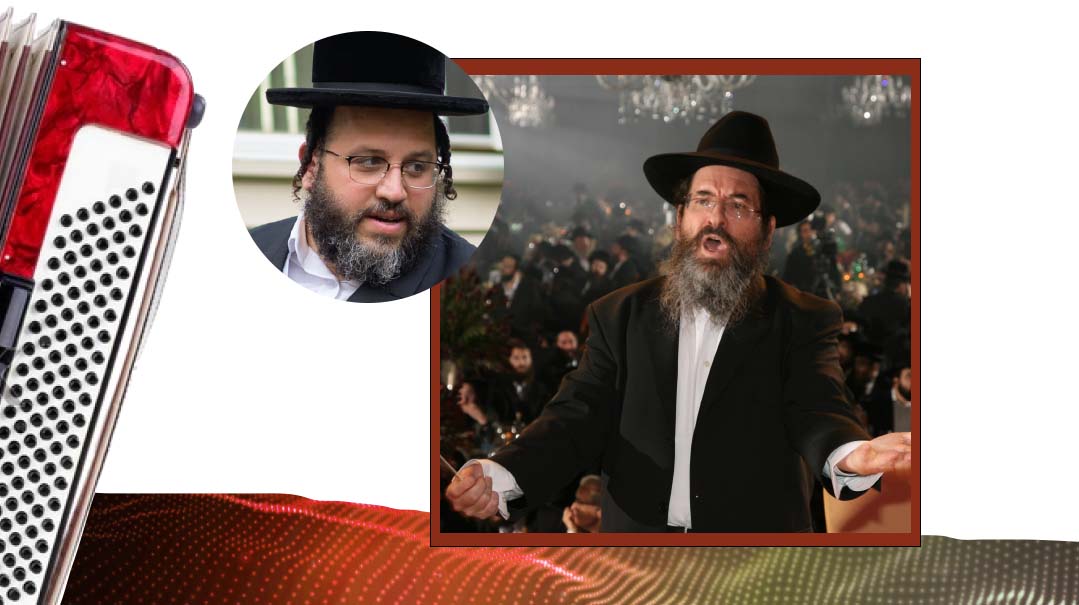
VELVEL SCHMELTZER, music commentator and program host on Kol Mevaser, and longtime head counselor at Camp Chaim Veshalom Munkatch invites MONA ROSENBLUM to his succah
Why?
Some people like old music, and some like new. The older material is heart-warming but sometimes lacks the professionalism of modern releases, while the newer material has that professionalism but often pushes the boundaries into modern musical territory. Mona’s music, on the other hand, has incredible varmkeit. He takes the beautiful, traditional chassidish material and brings it to 2021. If Mona composed or arranged a song, you can bring it into your home without worries and let your kids listen to it. It’s “oleh al shulchan melachim” — or, to put it more bluntly, there’s no garbage in it. Besides, he’s a geshmake and uplifting Yid, and I’d love to spend time with him in my succah.
Velvel:
As my succah guest, tell me what’s most special about Succos for you.
Mona:
I would say the happiness. Zeman simchaseinu — all the hashpaos of simchah for the entire year come down on these days. Once we’ve gotten rid of our aveiros, we get to feel the joy of being reborn and close to Hashem. And if we can hold onto that, it’s a lifesaver. Rebbe Levi Yitzchok of Berditchev once passed the river, where all the townspeople were crying out in panic because someone was drowning. He took in the dangerous situation and called out, “When you get down there, give regards to the Leviyasan.” The struggling man heard the joke and laughed, and then swam with renewed energy he never thought he had. Let’s grasp the joy with both hands.
Velvel:
Is there a specific song that gets you into the Succos mood?
Mona:
I would say, “Ashreichem Talmidei Chachamim.” The song came to me while I was sitting in kollel and came across those words in a Gemara in Menachos. I banged on the table and started singing the words to the tune “Ashreichem ashreichem ashreichem ashreichem talmidei chachamim...” Often when a song comes to me like that, I sing it, and it’s the first time and the last time, because I don’t remember it after that. But when I sang that song in kollel, someone recorded it, without telling me.
We always hold a major siyum on Chol Hamoed Succos, with guests, a meal, and plenty singing, in honor of the Ushpizin Moshe, whose name I carry. So six months later, on Succos, I was making a siyum in my succah on maseches Menachos, when this friend asked for quiet and played my song to the words “Ashreichem talmidei chachamim.” I didn’t even remember it — I had to learn it from the recording like everyone else. But it will always remind me of Succos.
Velvel:
It sounds like the Ananei Hakavod were really hovering over you then.
Mona:
Yes, it’s time like that where you feel the direct Hashgachah, and in truth, the Ananei Hakavod, symbolized by the succah, means “You are not alone. Ever.” This is a Jew’s reality the entire year, but Succos is the revelation and the best time to feel it.
Velvel:
Who is the most important guest you’ve ever entertained in your succah?
Mona:
Anyone who comes is the most important guest we could have.
Velvel:
If you could invite any guest to your succah, who would you invite?
Mona:
Well, I guess the guest I’m really longing for is Eliyahu Hanavi, who will tell us the Geulah is on the way.
Velvel:
What is your most meaningful succah decoration?
Mona:
Our pictures of tzaddikim from all the streams of Klal Yisrael — Sephardic, Litvish, chassidish. One person from the industry who was in our succah told me he was so touched by this that he was inspired to begin a teshuvah journey.
Velvel:
Is there an old song no one sings anymore but you wish they did?
Mona:
Well, they still sing “Baruch Elokeinu Shebaranu Lichvodo” at hakafos, but that’s it. You never hear it at other times. And it’s so beautiful, the words are incredible and are at the heart of what we live for. Recently someone sent me a clip of cheder children singing it with such purity and innocence that I was moved to tears.
Velvel:
Are there words you’re still dreaming of making a song for?
Mona:
I want to write a tune for the Chofetz Chaim’s prayer to be protected from speaking lashon hara. Many people say it before they begin a machsom l’fi hour, but I think it would help us keep our mouths under control if we had a beautiful niggun for these words.
(Originally featured in Mishpacha, Issue 878)
Oops! We could not locate your form.

